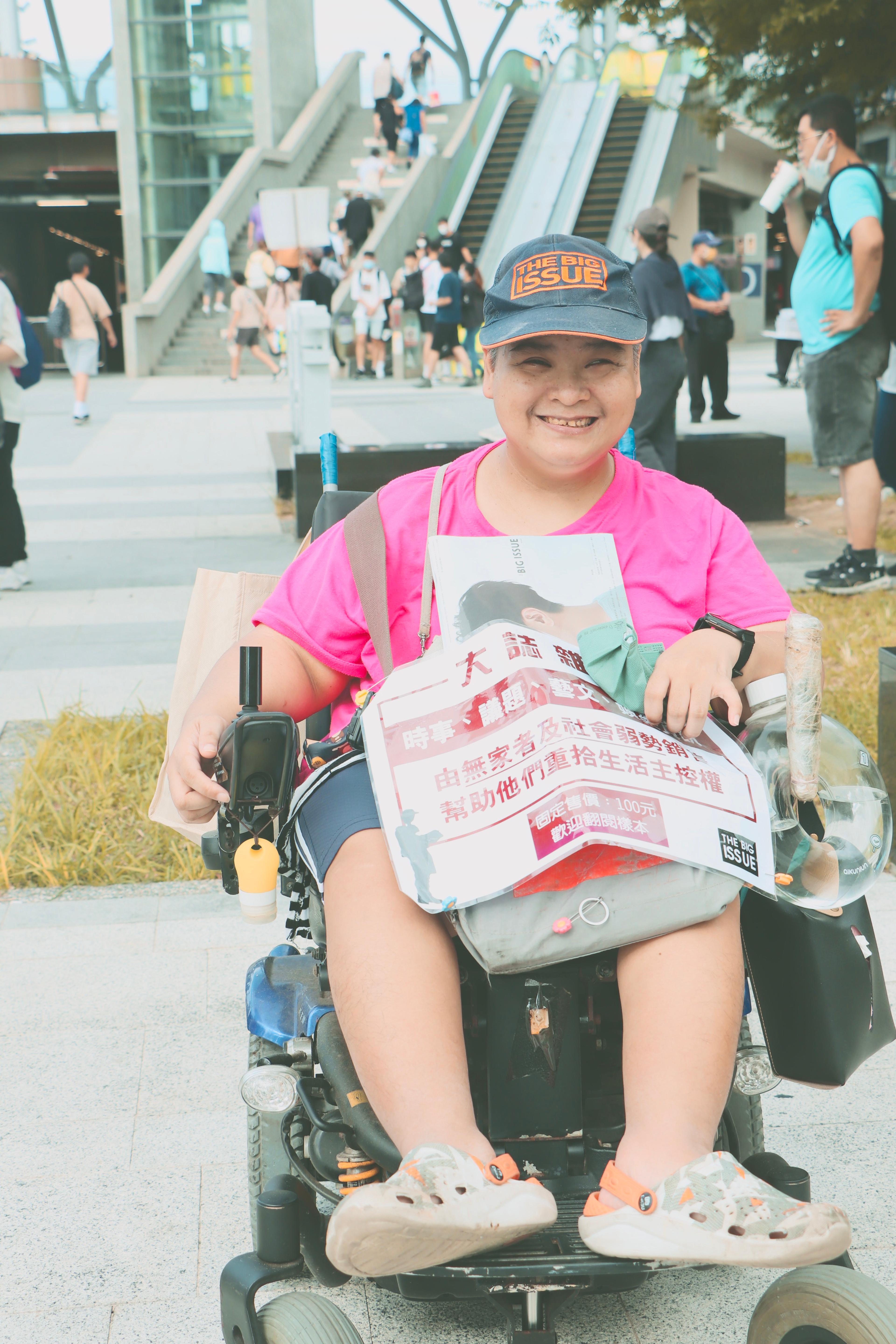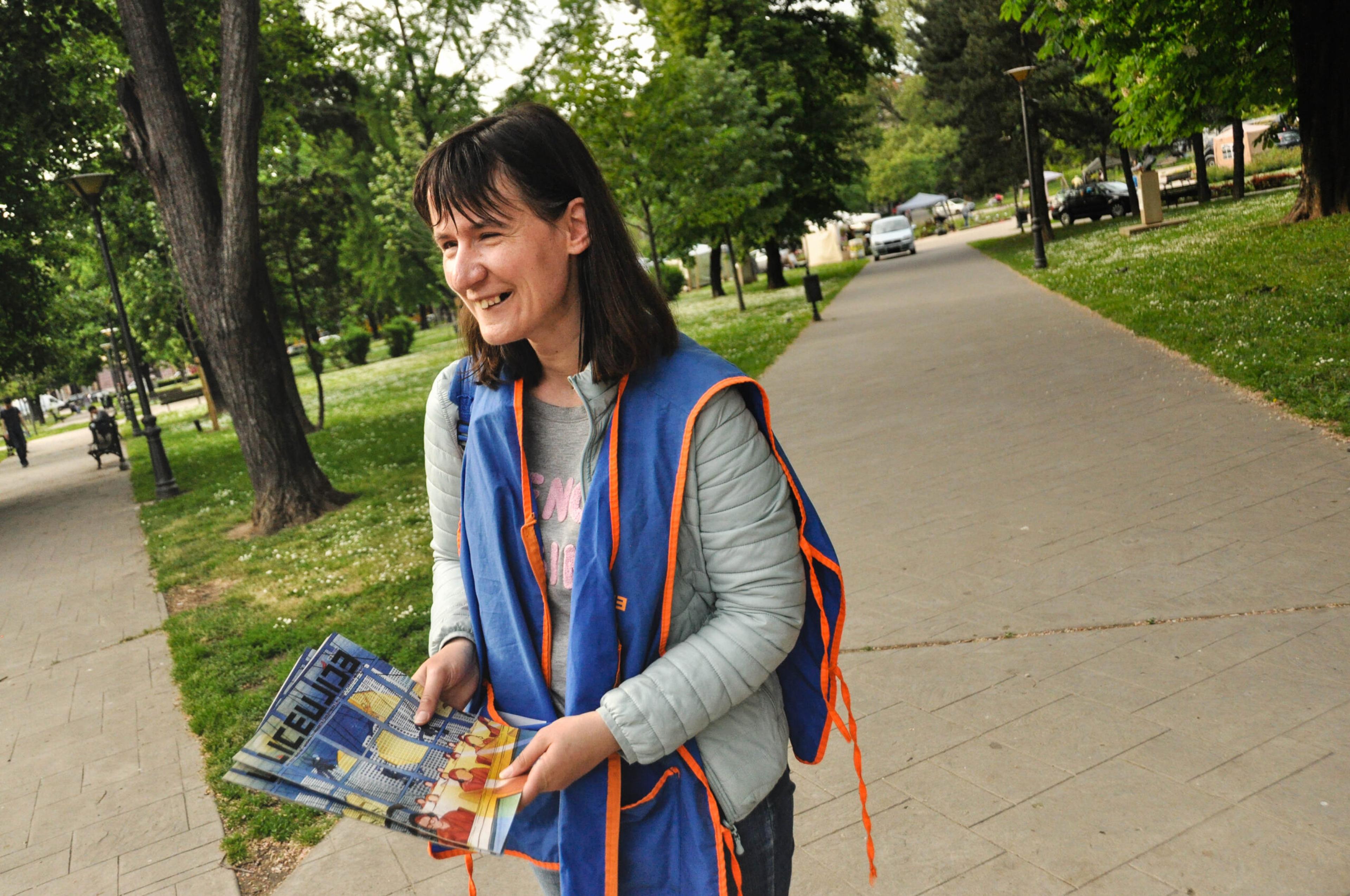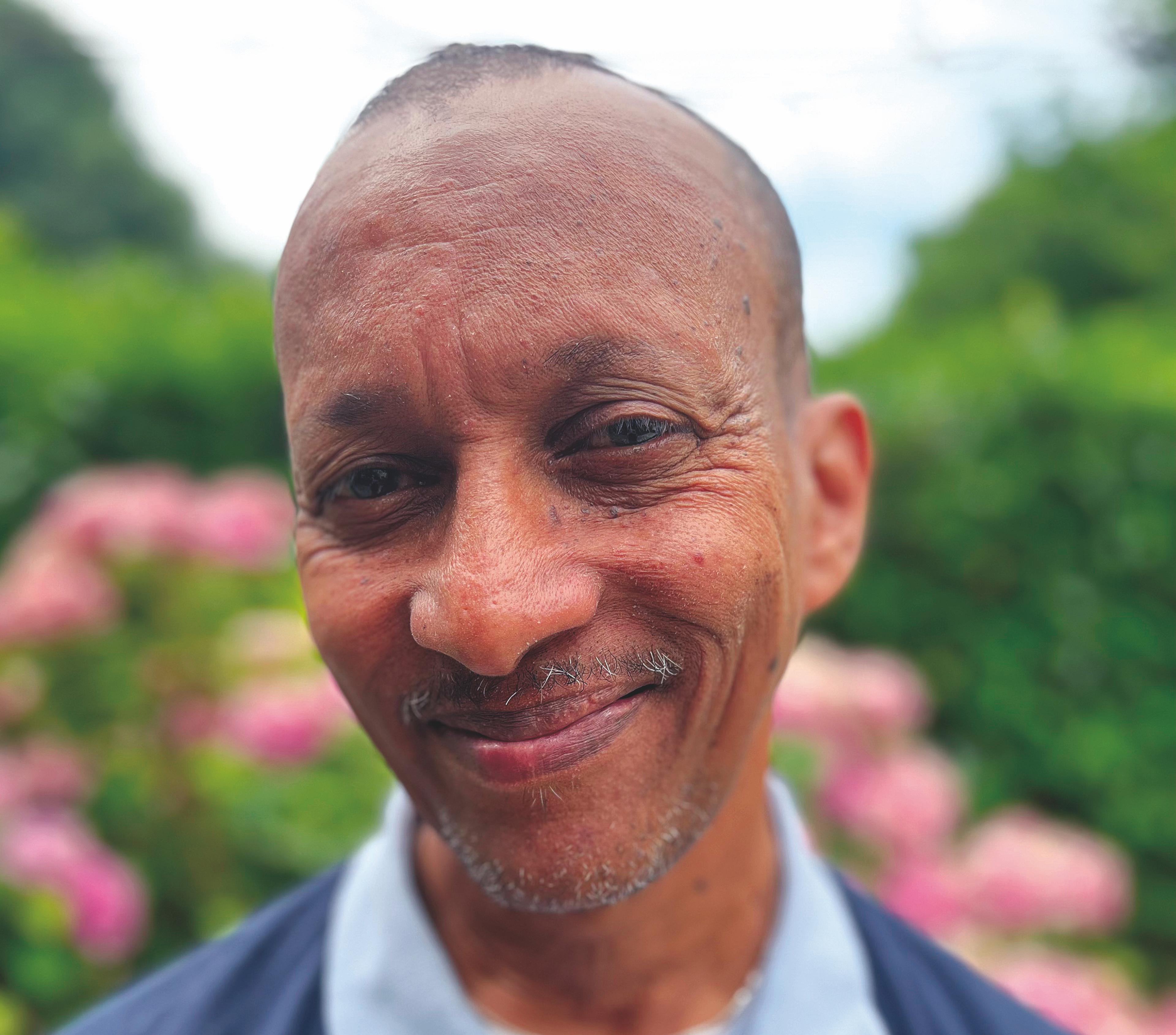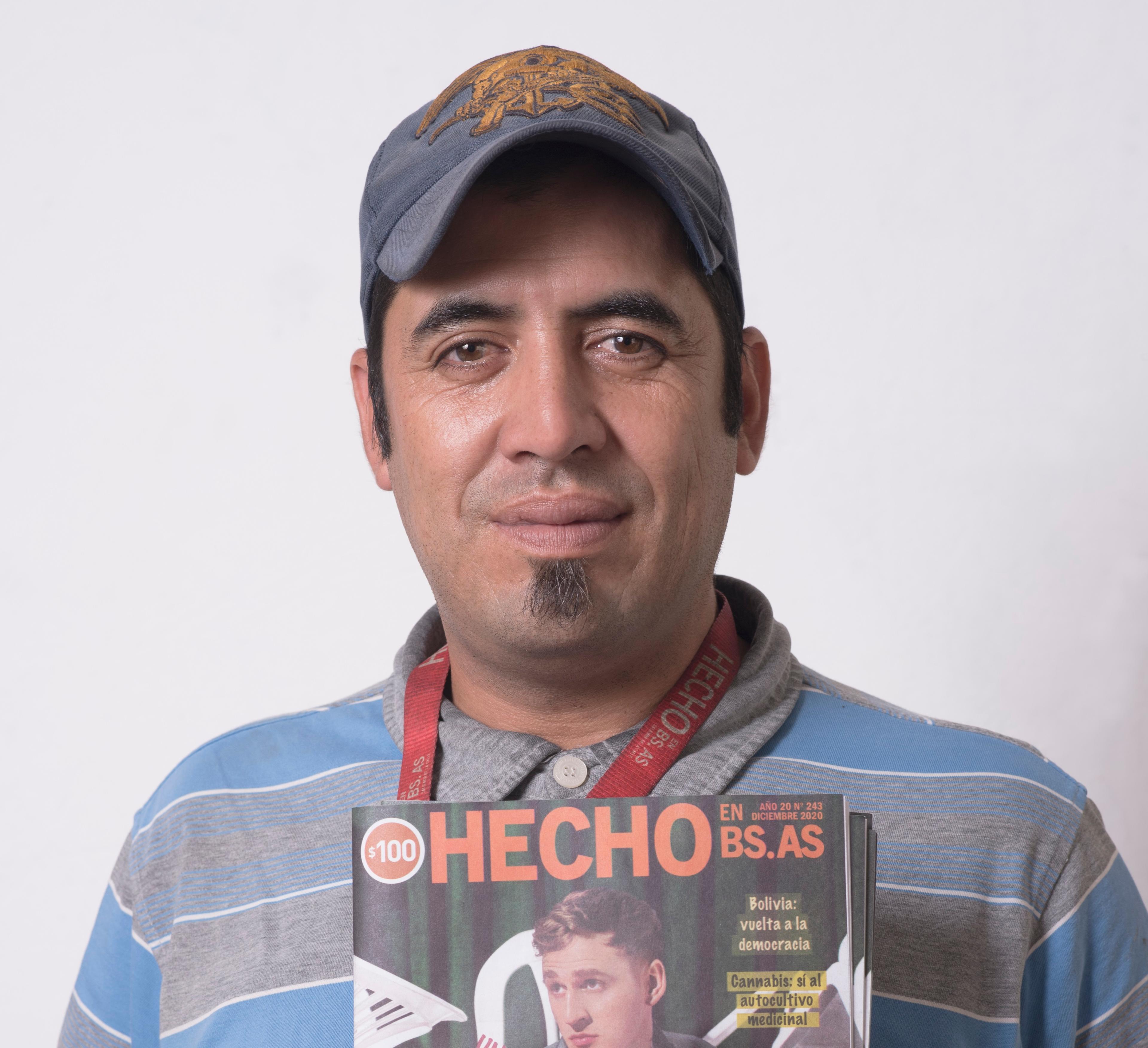Big Issue Taiwan vendor Hu Peilian: “This job has shown me that I can actually support myself without having to rely on other people”

Credit: Chen Zi-Hua
By Chen Zi-Hua, in collaboration with Very Mulan
- Vendor stories

Hu Peilian, affectionately known as Ms. Hu, sells The Big Issue Taiwan at the entrance of Taichung Railway station. Ms. Hu uses a wheelchair, and had been rejected from many jobs because of her physical disability before finding the street paper.
Basking in the heat, weekend crowds are gathered in the plaza in front of Taichung Railway Station. There are train passengers, marketgoers, young students energetically filming dance videos, and, as usual, Ms. Hu selling The Big Issue. While others seek out shade from the blistering sun, Hu remains in her spot the whole afternoon, her wheelchair parked next to the escalators to ensure she can be easily spotted by the crowds.
Hu can remember the first time she saw The Big Issue at Taichung Railway Station. “I wanted to go over the first time I saw the stand, but I was afraid,” she says. Hu had been rejected from many jobs because of her physical disability and had stayed at home for a long time, relying on government support. During this time, she gradually lost her confidence with crowds and became afraid to go out, use public transport, and even go shopping alone.
Around seven or eight years ago, following a recommendation from a home attendant who had purchased a copy of The Big Issue, Hu mustered up the courage to become a vendor. “I vividly remember that I was so shy on my first day of selling [the magazine],” she says. “I barely even managed to utter a word. But there were many passers-by who were very encouraging.” Some people would stay for a chat when they purchased the magazine, while others would tell her to keep up the good work. Over the years, Hu has kept this memory close to her heart. She has gradually overcome her fear of crowds and is so much more at ease than she was on her first day.
Now she and her husband, Lai, who is also a vendor, take turns to sell the magazine at this pitch. The remaining days of each month are reserved for spending time with their children, who are usually cared for by their grandmother.
Their responsibility for their family makes both of them work harder. Lai always takes as many magazines as he can when he goes out to sell, and often returns home with inky imprints all over his knees from where the magazines have been pressing against them all day. And while Hu may not be able to carry as many magazines as Lai, she takes as few breaks as possible throughout the day to avoid missing out on selling hours.
“In the time from never having heard of the magazine to selling it, I think I have had many valuable people come into my life,” Hu says. Hu will be forever grateful to the home attendant who recommended The Big Issue to her, to the magazine who gave her the opportunity to work, and to all the customers who encouraged her and even helped her sell when she was suffering from heat stroke.
She also hopes that anyone in the same situation as her will feel encouraged to give it a try. “This job has shown me that I can actually support myself without having to rely on other people,” she says. If society is willing to give opportunities to people like her, she is sure she will be able to succeed, and others will too.
In addition to being able to support herself, Hu often helps others. She engages in acts such as buying hot drinks for homeless elders on cold nights, sharing a blanket from home, or giving away donated items she receives. She believes in the cycle of goodness and has long been a part of it.
During our interview, Hu kept commenting that she couldn’t hold very many magazines because her hands were not strong enough. But it is clear that these hands, which support both her and so many others, may be much stronger than she thinks.
About Very Mulan
Very Mulan was established in 2012 by its chairman, Chang Shu-Mei, as a content platform to encourage “social innovation and women’s empowerment”. The platform aims to amplify women’s voices by telling their stories, to use its role as a social enterprise to support entrepreneurs who are interested in tackling social issues, and to gather resources to act as a “female empowerment matchmaker”. Stand For Small supports more small and beautiful things for the good of society.
Translated from Mandarin via Translators without Borders


